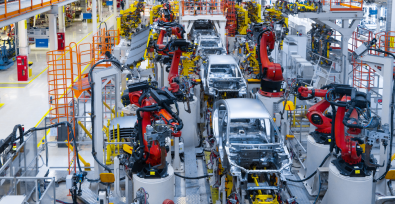A recent report by Human Rights Watch (HRW) found aluminum made by Uyghur forced labor may be in the supply chains of many global car manufacturers including Toyota, Volkswagen, Tesla, General Motors, and BYD. As reported by The Guardian, the report further calls on these manufacturing leaders to do more to minimize that risk.
Human rights standards not applied
Thanks to the Chinese government’s labor transfer programs, Uyghur forced labor across China is hidden from sight. These programs “coerce Uyghurs and other Turkic Muslims into jobs in Xinjiang and other regions”. The concerns raised in the report shine a light on the link between these government-backed programs and aluminum smelting in China’s Uyghur Region.
According to The Guardian:
The high level of repression and surveillance in Xinjiang, including threats to workers and auditors make it impossible…to conduct credible investigations into allegations of forced labor.
With many well-documented examples of Uyghur forced labor being used by the Chinese government across various sectors, the current situation means there is no way to ensure that the supply chains for auto components are not contaminated by forced labor. Currently, more than 9% of the global supply of aluminum comes from the Uyghur Region in the form of ingots that get melted down elsewhere in China and then mixed with other materials to make auto parts exported to car manufacturers, tainting the whole product.
Happy to do business hostile to human rights
The Chinese government has welcomed car manufacturers with open arms but continues to slam the door on human rights due diligence. Most carmakers already profess human rights and supply chain due diligence across their business. But as China is increasingly a manufacturing base for car exports and considering the Chinese government’s hostility to forced labor prevention due diligence thus far, carmakers need to do more.
Jim Wormington, an HRW senior researcher, said:
…there’s absolutely the risk you could be driving a vehicle on the roads in places like the EU and Australia that contains aluminum linked to forced labor in Xinjiang.
Based on evidence and research, there’s an assumption in the global community that anything manufactured in the Uyghur Region has forced labor baked in. Like the US’s Uyghur Forced Labor Prevention Act which blocks the importation of anything potentially linked to state-enforced forced labor, HRW and Freedom United call on governments everywhere to send a clear message that access to their consumers is contingent on demonstrating products aren’t linked to forced labor. By taking steps like directly sourcing their aluminum from smelters outside the Uyghur Region and demanding better source mapping and information from aluminum suppliers, carmakers could help dial up the pressure on China to stop using forced labor and ensure their products are really living up to their espoused human rights ideals.
Stop China from driving Uyghur forced labor
Another report from 2022 implicated over 100 car companies including Volkswagen, Stellantis, Mercedes-Benz, Ford, General Motors, Honda, Nissan, and BYD as well as Toyota and Tesla as being complicit when it comes to forced labor. Freedom United has added our voice to that of HRW and many other human rights organizations demanding that China stop driving Uyghur forced labor wherever it is found. Evidence from the report shows nearly every car part should get heightened scrutiny to ensure that it is not linked to Uyghur forced labor.
Wormington told the Guardian:
What we’re asking car companies to do is really having a strategy … As the car industry is the world’s biggest user of aluminum, it can send a really powerful message.
Join us and tell the ten biggest car companies in the world that they must put people over profits and cut ties with the Uyghur forced labor system. Use your power and urge the Chinese government to end the persecution and exploitation of Uyghurs and other marginalized groups using forced labor.
Sign the petition and join the campaign!





Freedom United is interested in hearing from our community and welcomes relevant, informed comments, advice, and insights that advance the conversation around our campaigns and advocacy. We value inclusivity and respect within our community. To be approved, your comments should be civil.